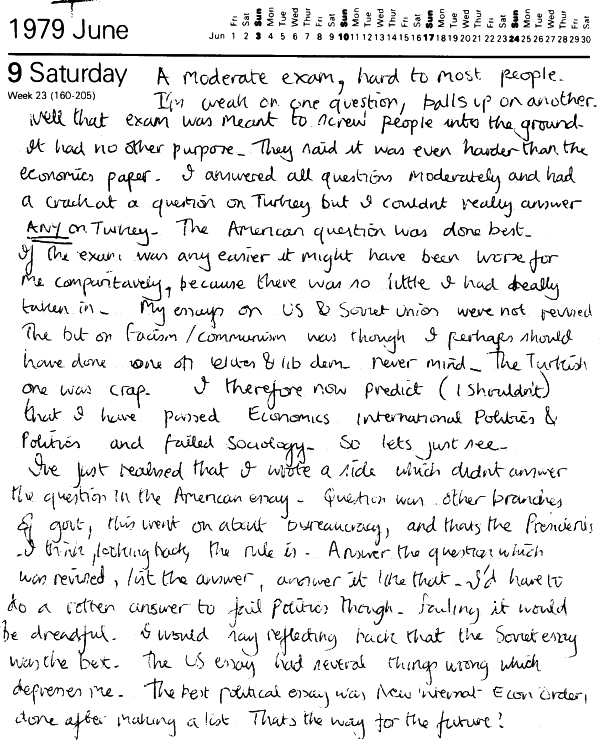THE UNIVERSITY OF HULL
ŻŻŻŻŻŻŻŻŻŻŻŻŻŻŻŻŻŻŻŻŻ
Qualifying Examination for the Special Degree of Bachelor of Arts: ECONOMIC & SOCIAL HISTORY, SOUTH EAST ASIAN STUDIES
Qualifying Examination for the Joint Degree of Bachelor of Arts: ECONOMICS, POLITICS & SOCIOLOGY, ECONOMIC & SOCIAL HISTORY AND ECONOMICS
Ancillary Examination for the Degree of Bachelor of Arts: POLITICS
Written Examination for the DIPLOMA IN POLITICS
Departmental Examination for First Year Special and Joint POLITICS
Departmental Examination for Second year Special SOCIAL STUDIES
1979
Saturday 9th June, 9.30 am - 12.30 pm
Answer FOUR questions, ONE from each section
SECTION A
- Is it possible to define politics without reference to coercion?
- Are political elitism and liberal democracy compatible?
- Are fascist and communist regimes more alike than unlike?
- "Authoritarian regimes in the Third World govern more by power than by authority." Discuss
SECTION B
- "The United States began as a liberal society and democracy was added later." Discuss.
- To what extent are the decision-making powers of the President limited by the other branches of government in the United States? Illustrate your answer with examples drawn from recent history.
- What accounts for the limited effectiveness of political parties in the United States?
- "In the United States, elections are many but the interest in them is slight." What factors account for this?
- "The powers of interest groups in the U.S. political process are excessive and undesirable." Are they and, if so, why?
SECTION C
- Would you accept the proposition that the Soviet Constitution is 'form without substance'?
- What measures does the CPSU employ to ensure its monopoly of power?
- Are analogies with western democratic parties helpful to the student of the CPSU?
- What are the distinctive features of the Soviet system of economic planning?
- Has the USSR ceased to be totalitarian?
SECTION D
- In what ways did the Democrat Party promote and in what ways inhibit the development of liberal-democracy in Turkey between 1950-60?
- What were the main principles at issue in the process of constitution making in Turkey in 1960 and 1961?
- To what extent have Turkish trade unions become politicised?
- "The military intervention in Turkey of 1971 revealed a complete change in the military's attitude towards politics." Discuss.
Adrian Worsfold

